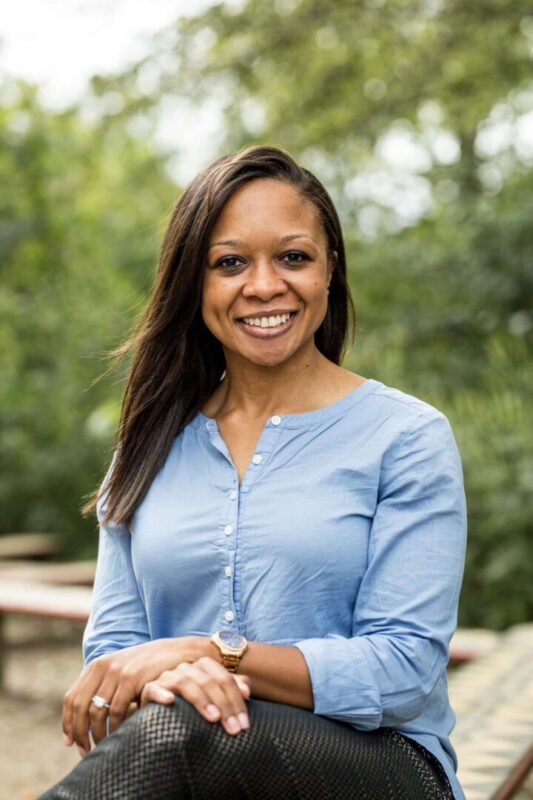I wanted to gather my things and leave the room with a quippy retort on the way out. I was teaching a class on the topic of race at a predominately Anglo church, and the last comment from an older Anglo-American man made the tension in the room tangible. After five weeks, it felt like the class was steeped deeper in their ignorance than when we began.
“How can they not see the injustices happening in our country?”
“Don’t they understand the gospel speaks into racial issues?”
These were a few thoughts invading my mind. I stayed in the room, but my pride— masquerading as righteous anger— convinced me it was hopeless and contributed to my already hardening heart that wanted to give up altogether.
The race conversation is like walking in a field of landmines, and to navigate it well, humility (the most modest and accurate opinion of oneself) is critical.
Humility Seeks an Honest Account of Our Nation’s History
Humanity has been contending with the sin of favoritism since the fall. Like Adam and Eve, we want to shift the blame. We dismiss the reality of our spotted racial past, the sins of those who have gone before us, and ignore the ways those sins affect us today.
One may see the sins of their forefathers or relatives, and in an attempt to disassociate themselves from the horror, they whitewash, dilute or outright ignore the bloodstained ground on which our nation was erected. Even our middle school American history classes tell a partial truth of the woes of America’s past and in doing so the racially charged events of the present become more difficult to understand.
But to run from the disturbing treatment of people of color in America—especially but not limited to Native and African Americans—is to deny our past and stunt our growth toward unity. It robs us of an opportunity to see God’s mercy.
God did not shy away from Israel’s unpleasant, sinful history. Each generation was reminded in some way—whether through enslavement, stories, or the witness of the prophets—of their disobedience to God. To ignore their tumultuous walk with the Lord would be to ignore the many ways God was merciful to his people and stayed committed to his covenant (Deuteronomy 4:29-31).
God instructs the Israelites to remember their past and remember their God (Genesis. 9:14-16; Isaiah 46:9), not to rub their shortcomings in their face, but to compel them to turn from their sins to God. Their remembrance was a warning to the next generation to be wary of committing the sins of the past and remain faithful to God.

Humility Reminds us the Gospel is True…For Us!
Humility leads us to an honest self-evaluation as we “take the log out of our own eye” (Matthew 7:5) before removing the speck in our brother’s. The log in our eye is not nearly as visible as the speck in our brother’s. If we think we see with flawless clarity on this topic, the Bible would warn us to “take heed, lest [we] fall” (1 Corinthians 1:12).
Pride causes us to avoid our prejudices and sins while pointing out someone else’s. The gospel reminds us we no longer need to hide behind our moral fig leaves. We are free to “confess our sins, [because] he is faithful and righteous to forgive us our sins and to cleanse us from all unrighteousness” (1 John 1:9). The problem is not merely “out there” with the people who just can’t seem to get it. It is also “in here”—our hearts. The gospel frees us to admit we are wrong sometimes, too.
The hope of the gospel is not simply for those hard-headed men and women who struggle with prejudices; humility reminds us that in any given situation we are that person. Whether we are recovering racists, recovering addicts, or recovering idolaters, we are all recovering from sin; therefore, we can come to this conversation on the level ground of the mercy of God.
Humility is not Resignation
When we hear “humility” in the context of the race conversation our teeth bear down in an uncomfortable cringe. It’s like the word “meek.” We know these are godly characteristics, but we cannot disassociate the feeling that to be meek or humble is setting ourselves up to be taken advantaged of or abused. We hear humility and we associate it with passive resignation.
But Christ’s humility described in Philippians 2:5-11, which led him to take on the form of a servant and to be obedient to the point of death, was not a passive resignation to the powers of the enemy. Christ’s humility was an active participation in the redemption of sinful humanity. We’re commanded to “adopt the same attitude” (Philippians 2:5).
Humility looks different in different situations, but it is a consistent inner perspective that modestly views oneself and sacrificially considers the needs of another as more important. In the race conversation, humility could mean speaking the truth in love (Ephesians 4:15), a corrective rebuke, being slow to speak and quick to listen (James 1:19), or the hardest of all— silence (Proverbs 10:19; 11:12).
Humility Moves Us to Pray
The race conversation is frustrating, partly because it is impossible to bring together people who have historically contended with one another. It’s humbling to acknowledge that this work can only be done by the power of the Holy Spirit through prayer.
Humility moves us to pray for ourselves, our family, our church and our nation. It acknowledges that even when we can not conceive what God is doing in His sovereign actions, He is moving in thousands of ways that escape our understanding.
Prayer Requests:
- Pray for discernment to know what humility looks like in your conversations and actions.
- Pray the Holy Spirit gives you freedom in the gospel to confess your prejudices.
- Pray humility is a the defining characteristic of you and your local church.












